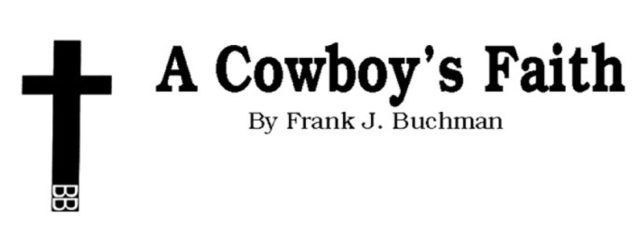“What is that dirt on your forehead?”
“Here, let me wipe off your forehead. There’s a smudge of some kind on it.”
One of those statements or similarities will be said numerous times next Wednesday, Feb. 6. At least our experience indicates such. Many people will have a cross marked with ashes on their forehead, and those kindly noticing won’t know why.
Reason for the seemingly out-out-place smudge of dust is that it’s Ash Wednesday. This is traditionally celebrated on the seventh Wednesday before Easter. Likewise, it is the first day of Lent. There are 40 weekdays until Easter, and Lent is the time of fasting and penitence in preparation for Easter.
Consequently, many Christians, us included, will be given the smear of ashes as a token of penitence and mortality. Faithful of many religions receive this cross to remind us of death, of the sorrow felt for our sins and the necessity of improving our lives.
Ashes used in the worship are sacramentals, not sacraments. They are prepared by burning palm leaves from the previous Palm Sunday. Holy Water is used in blessings.
A pastor, or sometimes a layperson, makes the shape of a cross with the ashes on the forehead. Instructions are given, according to Genesis 3:19: “Remember that you are dust, and unto dust you shall return.”
Worshipers traditionally retain the smear until washing it off after sundown. This is done as a witness that all people are sinners and in need of repentance and that through Jesus all sins are forgiven by faith.
There are those who rub the ashes off or pull their hat down hard to eliminate the questions, which arise. They don’t what to explain the ashes, but the cross does provide an excellent opportunity to spread word of the day and reasoning for it.
Typically observed also are fasting, abstinence from meats, corporate confession rites and repentance, making Wednesday a time of contemplating one’s transgressions. In certain services, members of the congregation are invited to write sins on a piece of
paper, and the slips are brought to the altar where they are burned.
Christians are not bound to observe Ash Wednesday. However, imposition of ashes is meaningless, even hypocritical, unless there is inner repentance and change of behavior.
The practice is mentioned several times in the Old Testament. Having been rebuked by God, Job (42:6), confesses, “Therefore I despise myself and repent in dust and ashes.”
Quoted in Saint Matthew 11:21, and Saint Luke 10:13, Jesus said, “If the mighty works had been done, they would have repented long ago in sackcloth and ashes.
+++ALLELUIA+++
